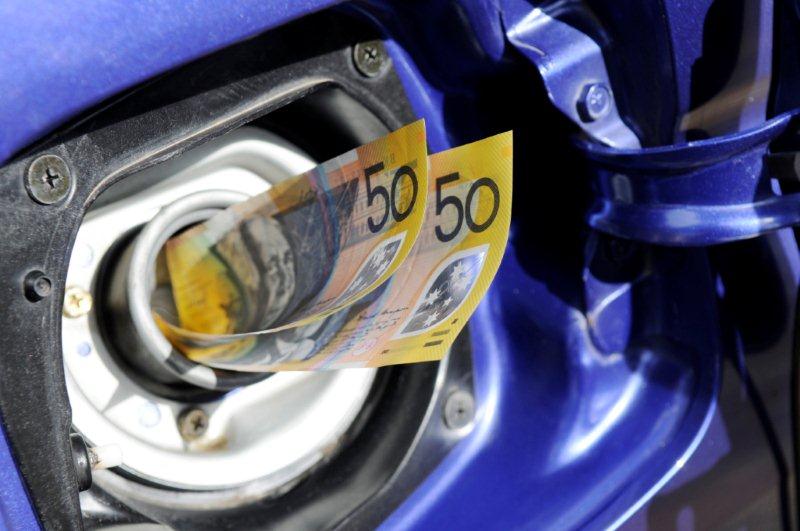Prepayment systems, a state-wide education campaign and industry forums held six times a year are among the recommendations made in a new state government report in Victoria to combat fuel drive-offs.
Released this week, the Law Reform, Road and Community Safety Committee’s Inquiry into Fuel Drive -Offs found drive-offs, when a motorist fills a vehicle with fuel at a petrol station and drives off without paying for the fuel, are estimated to be costing Victorian retailers between $17 and $20 million annually.
The report made eight recommendations to try and reduce the amount of drive-offs in Victoria including developing an online fuel drive-off incident report form and a withdrawal of complaint form, as well as a state-wide fuel drive-off education campaign, in partnership with Victoria Police, Crime Stoppers Victoria and the fuel retail industry.
It proposed Victoria Police conduct six monthly forums with fuel retailers to discuss drive-off issues and that Victoria Police establish a prevention guide for the industry. The report also recommended the Victorian Government, in consultation with industry groups, assist the sector to implement prepayment systems at petrol stations.
Disparity in data
According to the report, Victorian Crime Statistics recorded 3111 drive-offs in 2014, down from 3958 in 2013 and 4914 in 2012, however, the Australasian Convenience and Petroleum Marketers Association (ACAPMA) estimated the total number of drive-offs in Victoria in 2015 at 192,000. In explaining the disparity between fuel drive-offs and police and industry recorded statistics, Mark McKenzie, CEO of ACAPMA, noted the change in the way police investigate fuel drive-offs has led to a decline in the reporting of fuel drive-offs from industry
“You see a stark difference between the number of offences we report, in terms of 192,000, and the police reporting, a bit over 3000 offences. The industry has been working under the impression for the last two years that this is not a police matter — that unless the vehicle has a stolen number plate or is a vehicle that is of interest in terms of being stolen, that it should be reported to the police. In all other instances they recognise that they are having to do it themselves, which is why you potentially will see the police recording a slight drop-off in the numbers, because the industry is now no longer reporting them.”
The Victorian Automobile Chamber of Commerce (VACC) said fuel theft in Victoria is extensive and affects almost all fuel retailers in the metropolitan area and many in regional Victoria, adding incidents were continuing to rise. According to the Australasian Association of Convenience Stores'(AACS) State of the Industry Report the rate of drive-offs increased 6.8 per cent nationally in 2014.
Convenience industry counts the cost
In its submission, AACS stated that its State of the Industry Report 2014 calculated the loss to fuel retailers in 2014 due to drive-offs was $220 per week, with an overall cost to the Australian convenience industry of $66 million.
The 2014 figures compiled by AACS represented an increase from the previous year. Jeff Rogut, CEO of AACS, said in 2011 the average cost of fuel drive-offs to petrol retailers was around $116 per site, per week, and by 2014 the cost had risen to $220 per site, per week.
Individual fuel retailers also provided cost estimates, with 7-Eleven noting for the 2014-15 financial year, aggregate losses to its 150 stores was $1.04 million (excluding GST). In terms of prevalence, 7-Eleven stores in Victoria averaged 10 fuel drive-offs per month at a cost of $581 per store per month.
APCO Service Stations said fuel drive-offs varied from week to week, costing between $50 and $300 per week – and as much as $100 or more each month – across its stores. Independent operator Mr Fury Bortolotto estimated his Diamond Creek retail shop experienced one theft a week, at an average cost of $80 or $4,160 per annum.
The inquiry report stated drive-offs in Victoria occur throughout the day but are most heavily concentrated between 10am and 12pm. Drive-offs predominantly take place in metro areas, with Brimbank, Casery and Hume accounting for almost half of all recorded fuel drive-offs.
The vast majority who commit fuel drive-offs are men aged between 15 and 34. While women comprise a smaller cohort of offenders, those that do commit fuel drive-offs are most often aged between 20 and 29. Of the 2266 recorded incidents in Victoria between 2012 and 2014 men comprised of 81 per cent of the total.
In both submissions and at public hearings, the Committee received evidence that fuel drive-offs were linked to other crimes, most often the theft and use of number plates. The report stated anecdotal evidence suggests there may be a connection between fuel thefts and stolen number plates, but said there was insufficient reliable data available to assess the extent of that connection.
Shopper dockets fuel discounts
Supermarket fuel discounts were also highlighted in the report, with it noting the Victorian Government will introduce regulations later this year prohibiting the advertising of discounted fuel price at retail fuel stations.
The regulations will require fuel retailers to show the current, un-discounted price of fuels on advertising boards, with fines of up $3000 if a retailer fails to comply with the legislation. Similar prohibitions are currently in place in Queensland, South Australia and New South Wales.
In February, Minister for Consumer Affairs, Gaming and Liquor Regulation Jane Garrett said the new regulations will improve transparency and protect motorists from confusing information as they make decisions in traffic.
“The Andrews Labor Government is introducing new fuel price board regulations so all motorists get a fair deal at the bowser,” Ms Garrett said.
“We want to make sure consumers aren’t being lured in to petrol stations by ‘cheap’ prices which are conditional on a shopper docket.”


stop whinging and implement pay B4 you fill. Dont rely of the free use of police as debt collectors. Take responsibility for your own lack of actions.